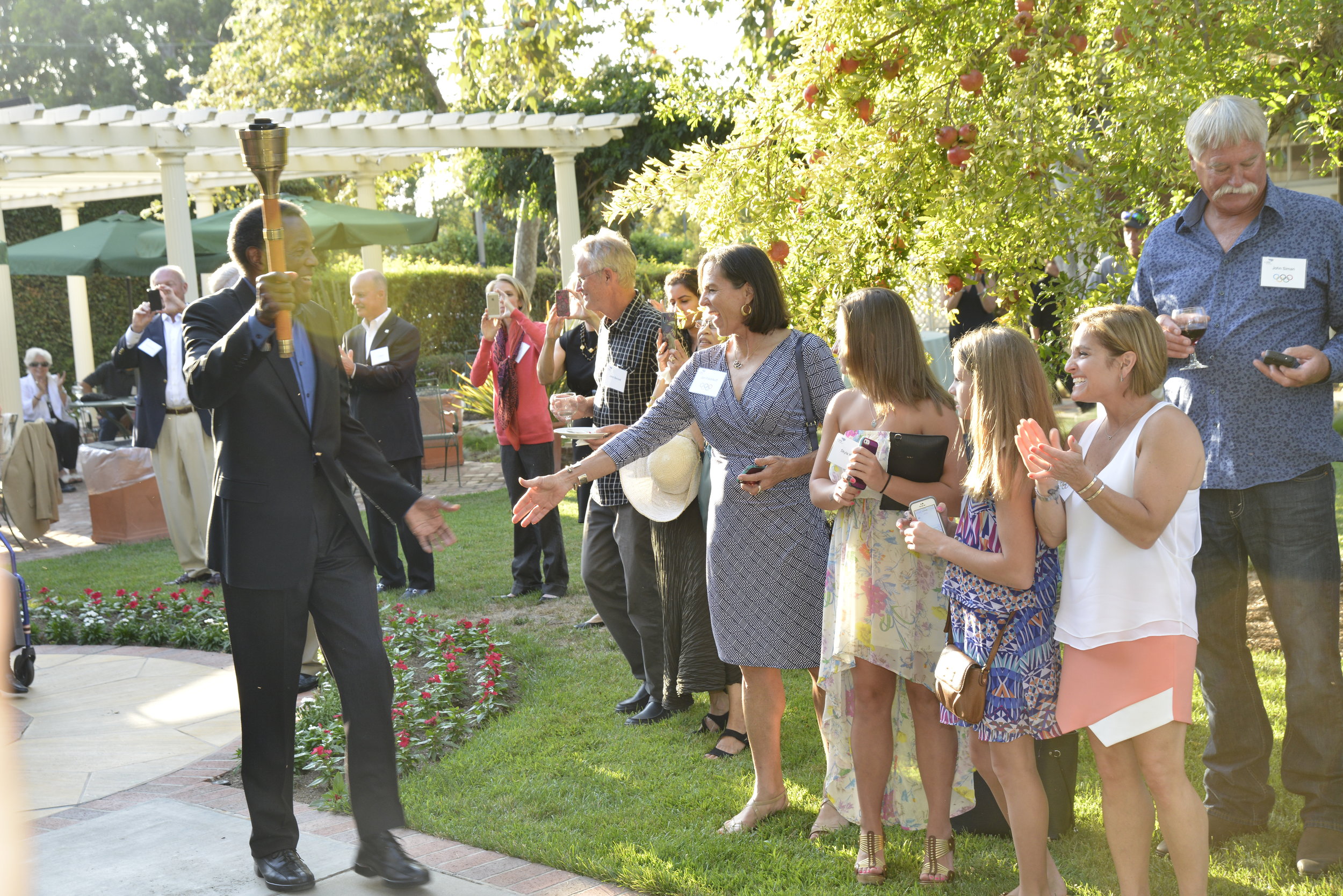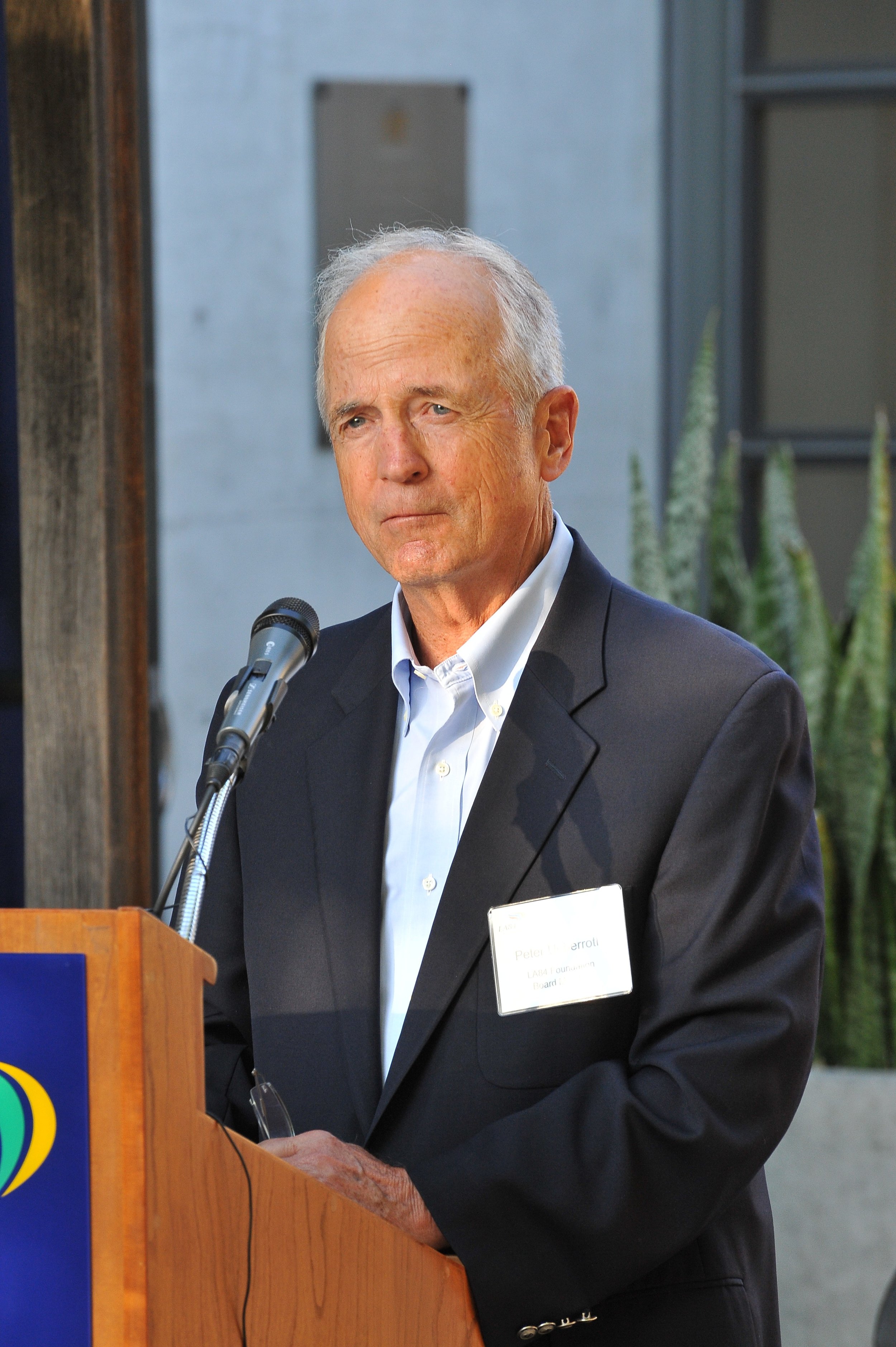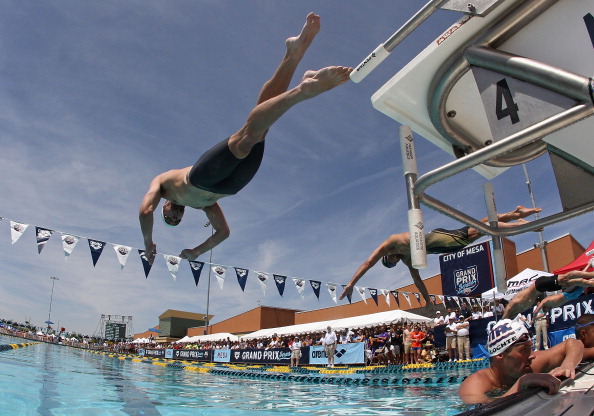It’s natural for proponents of an Olympic campaign to be all cheery and optimistic, and such was the case Monday when Boston 2024 unveiled its so-called Bid 2.0, new bid leader Steve Pagliuca declaring, “We’ve now done the ‘little-picture' thinking. We think we’ve made the major leaps.”
On the eve of Tuesday’s key U.S. Olympic Committee meeting, however, this reality check: Bid 2.0 is rife with revenue and expense issues that call into question not just its fundamental premises but also, bluntly, the integrity of the process. Moreover, the Boston bid — as the pronounced absence of the mayor at Monday’s event emphatically underscores — faces political problems galore.
No one likes to admit to a mistake.
But when it meets Tuesday in Redwood City, California, the USOC board of directors would do itself — and the Olympic movement at home and worldwide — a huge favor by killing off this troubled Boston bid.

Boston 2024 hasn’t been good from the start. Bid 2.0 is not going to help matters.
The obvious answer is to move to Los Angeles, for 2024 and, if need be, 2028. The USOC knows this. It’s now a question of finding the courage to do the right thing.
Time, indeed, is of the essence.
There is within the IOC, which is based in Lausanne, Switzerland, something of a movement to see the Games return to the United States in 2024.
But not Boston.
Over recent weeks in Lausanne, and in Baku, Azerbaijan, where the first European Games just concluded, there has been talk. And that talk, as it relates to Boston — by at least a third of the members of the IOC, if not more — has been uniformly negative.
It's easy to understand why. The poll numbers of 39 percent. The leadership shuffles. The changes from the original “walkability” plan. And more.
In the meantime, there is so much wrong with Bid 2.0, it’s truly difficult to know where to start.
Deep breath.
Here goes.
The overarching problem is this:
It is commonly said that the 1984 Los Angeles Games transformed the Olympics. That is true. Under the leadership of Peter Ueberroth, they ushered in the commercial era that now dominates the movement.
But it is also true that Barcelona 1992 may be just as, if not, more important: those Games showed mayors, governors, prime ministers and presidents that the Olympics could serve as a catalyst for an urban makeover on a grand scale.
Because an Olympics comes with a seven-year hard deadline — the time from the awarding of a Games until opening ceremony — it offers the opportunity to get done in seven years what would otherwise take, public policy-wise, 20 years, 30 or more.
Barcelona was a middling city on the Mediterranean before 1992. Now it is one of the world’s most desirable tourist destinations.
Since 1992, Olympic bid cities have used Barcelona as a model for hugely expansive urban makeovers.
That, in a nutshell, is what Boston 2024 Bid 2.0 is selling: the creation of two new neighborhoods. One would be “Midtown,” an 83-acre neighborhood at Widett Circle, the site of what would be a 69,000-seat temporary Olympic stadium. The other revolves around development of 30 acres at Columbia Point, the proposed waterfront site of the athletes’ village.
The problem is elemental.
This urban-catalyst approach to the Olympics came to a screeching halt with the 2014 Sochi Olympics, and the $51 billion figure associated with those Games.
No one is suggesting that Boston would be a $51 billion noose.
But the idea of using the Games, Barcelona style, is over. Yet that is the fundamental driver of Bid 2.0.
You see the comparisons throughout Bid 2.0 to New York’s failed 2012 bid, and the Hudson Yards project. New York ran that bid in 2004 and 2005. That, in Olympic terms, is a long, long time ago.
Indeed, the entire premise of IOC president Thomas Bach’s Agenda 2020, his would-be reform manifesto, is to move away from these enormous urban makeover projects.
The IOC is still big on "legacy." In the jargon, that's what a Games can mean to a community during and after the 17-day run of an Olympics.
But after killer cost overruns in Sochi, Beijing (2008), London (which won for 2012) and, now, Rio (2016), the mega-city turnaround game is over.
Especially Sochi — this is the reason so many taxpayers in western democracies have turned against the Olympic movement. They fear the problematic nature of the costs associated with an Olympic Games.
As even the Boston 2024 people note in their glossy packaging, the Tokyo 2020 people have saved $1.7 billion via Agenda 2020.
So why go with a plan that proposes the construction of two new neighborhoods?
Does that, in our world as it is today and is likely to be in 2024, make sense?
Moving on to the details of Bid 2.0 itself.
The key document in everything that was made public Monday is called “planning process, benefits, risks, opportunities.”
First, revenues.
Some background. There were four U.S. bid city finalists: Boston, Los Angeles, San Francisco and Washington.
All four bid cities last year received a set of numbers from the USOC. All four were told to use certain figures to assess projected revenues in developing their bids. The big-ticket items were, as ever, an IOC contribution, ticketing and domestic sponsorship — all in, about $3.8 billion.
That $3.8 billion, however, was in 2024 dollars.
Adjusted to 2016 dollars, that $3.8 billion is really more like $3 billion even.
On Monday, turning to page 20 of the document, Boston 2024 projected $4.27 billion in those three big-ticket items.
That’s up roughly $1.25 billion (given rounding errors).
Think about a bid that San Francisco, Washington or — in particular, Los Angeles — could have put together with an extra $1.25 billion.
These next questions deserve to be asked:
Is what Boston 2024 has done in this instance fair? Does this sort of financial maneuvering demonstrate integrity, particularly when the bid people are fully aware that only a very few people know, truly, how the system works?
Some more finances, just to show the import of what’s on the printed page.
Back to page 9, entitled “Increased Boston tax revenues: Opportunity for significant investment.”
Here it purports to show that the city of Boston would earn $362 million in tax revenues by the year 2080 at Widett Circle.
That $362 million sounds impressive, right?
If you put $5 million into the stock market today and got a 7 percent return for 65 years, until the year 2080, you’d have $400 million.
So even though that $362 million looks big, it’s really nothing compared to the investment the people of Boston would be making.
Which makes for an excellent segue to expenses.
Let’s go there.
Pages 31 and 32: no aquatics center, no velodrome, no press center.
The Boston 2024 people keep asking for time.
Just give us time to make our case, goes their refrain.
And yet after a lengthy domestic bid process, a presentation last December to the USOC, being picked in January by the USOC and nearly six months’ more work — these three major items still can’t be produced?
Come on.
Moreover, the press center is low-balled at $50 million. That’s laughably low, probably a third of what it would really cost.
Turning to the stadium, and here you have to cross-reference between pages 22 and 35.
If they wanted to make this easy, they would have, right? But no.
Page 22: the temporary Olympic stadium costs pegged at $176 million.
That’s $176 million from the organizing committee’s budget. That’s one column of money.
But wait, page 35: $1.2 billion in additional costs for the stadium site, including land acquisition and relocation, “infrastructure” and contingencies.
This, then, makes up an entirely separate column of cash, to be paid for by a “master developer,” to be named in the future.
So: $1.376 billion, which is starting to sound about right, since NFL stadiums these days are in the $1.8 billion range.
Now let’s ask the common-sense questions:
Boston 2024 is asking a developer to spend $1.2 billion before it, the would-be Olympic organizing committee, spends a nickel. Who wants to step up?
If it’s such a great opportunity, why hasn’t it already been done?
As this prospectus of sorts notes, “Risks include higher than predicted costs for the land, relocation and decking. Current land owners could refuse to negotiate reasonable value for property. Risks also include failure to deliver proposed rezoning or tax agreement.”
All that? Really?
Just for the sake of being obvious: Los Angeles already has an Olympic stadium. The Games were held in the Coliseum in 1932 and 1984. The University of Southern California, which now manages the Coliseum, has committed to renovate it, whether there’s a Games or not, to the tune of up to $600 million.
So:
Option 1: LA will have a fully state-of-the-art facility available to the USOC without spending anything.
Option 2: Boston would spend $1.376 billion, at the least, for a stadium that is going to be torn down.
Which makes more sense?
For the sake of fairness: Los Angeles would obviously have to spend money on the Coliseum to get it particularly ready for an Olympics. The Boston bid is pegged at $176 million for stadium work; an LA committee was prepared to spend twice that.
Moving on to the athletes’ village, and turn, please, to page 37.
Here, Boston 2024 would have to find another master developer to spend another $1.9 billion. Risks include “higher costs associated with Athletes’ Village” and more.
At any rate: In Iraq we called this nation-building. Now we call it neighborhood-building.
How about security?
Please turn to page 50. The 2024 Olympic Games would be a massive security undertaking, almost surely what’s called a “National Special Security Event” like the 2002 Winter Games in Salt Lake City. Federal agencies take the lead in such events.
“Federal funding for security will be required,” the document asserts, and while there are dollar figures aplenty throughout the rest of its pages, there curiously is no mention here of what this might cost taxpayers throughout the United States for the Games.
Figure at least $1 billion.
Once more: is this honest? In keeping with (Agenda 2020-mandated) best-practices standards of transparency?
You wonder why key Massachusetts politicians have kept their distance?
U.S. Rep. Stephen Lynch, the Democrat who represents the district that includes the site of the temporary stadium, said a few days ago, “I really think it’s a bad idea. I think we can come up with a better solution.”
More critically, where was Boston Mayor Marty Walsh on Monday?
He was in Colorado, at the "Aspen Ideas Festival."
Just brutal.
The mayor is per IOC protocol the bid's political point person.
This is the bid’s big revival? And the mayor is talking up ideas instead of Bid 2.0?
Doesn’t that tell you everything you need to know?
If the United States is to have a chance at 2024 — indeed, if the IOC is to have a chance at giving the U.S. a chance — there’s only one option.
Mistakes are never fun to admit. But better to do it, and get it over with, and move not just along but ahead.
Kill this thing now. And get going with Los Angeles. Time is of the essence.










